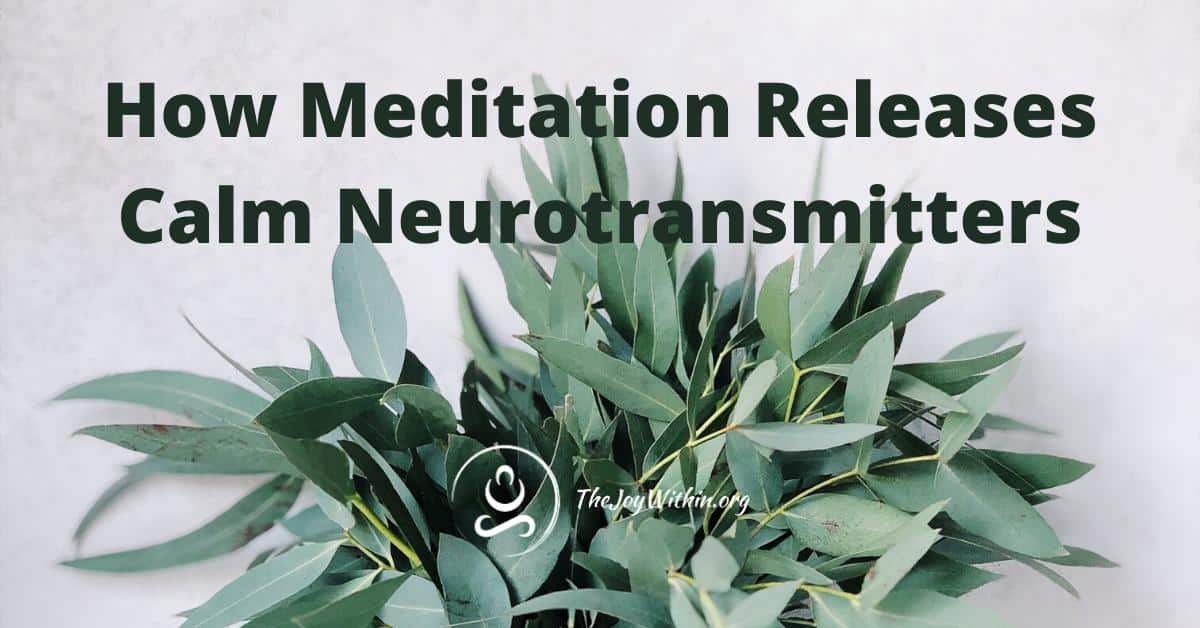The main goal of meditation tends to be seeking to tap into that inner peace. Although connected to your inner sanctuary are neurotransmitters. They work to guide the rest of your body into the same blissful state as they communicate and connect to every cell of your body.
Neurotransmitters and Meditation
First, a neurotransmitter is a type of chemical that our brain naturally creates and uses to send messages to other regions of the brain. It is released by a neuron (nerve) to communicate with a target site.
Target sites are located throughout the entire body including the brain. Their impact reaches through each of your cells, tissues, and systems of your body.
The influence neurotransmitters have on the body is incredible. They have an extensive effect on emotions, cognition, appetite, perception of pain, memory, concentration, and pleasure.
Calming neurotransmitters are categorized as inhibitory. They work to inhibit the likelihood that an action will be performed on the neurons that receive it. They also work to cool your central nervous system and work to maintain homeostasis within the body.

GABA
Gamma-Aminobutyric Acid is an inhibitory neurotransmitter that is most well known for its calming effect and mood regulation. GABA works to soothe and help neurons recover after firing. This, in turn, can decrease the effects of anxiety and stress.
Some scientists and researchers actually linked an imbalance of not enough GABA in the brain to addiction. Learn more about how meditation can help heal addictions.
A study compared a one-hour session of meditation to a non-meditating activity. In this case, it was a one-hour session of watching television. The results showed a significant increase in GABA (GABAergic inhibitory interneurons) in comparison to those of the nonmeditators.
Learn more about how meditation can increase GABA production here.
Serotonin
Most famous for its feel-good effects and is linked directly to depression, serotonin actually regulates a lot of functions within the body rather than simply mood. Serotonin regulates emotions, sexual function and desires, memory and learning, appetite, and sleep.
Serotonin is partially derived from the essential amino acid tryptophan. Foods that are high in the amino acid tryptophan include nuts and seeds, chicken, soy or tofu, salmon, cheese, eggs, beans and lentils, and turkey.
Many studies have resulted to show that meditation can actually increase serotonin levels. Studies show that not only is there a rise in serotonin after a meditation even It also showed that regular meditators naturally have higher levels of serotonin than non-meditators.
The Journal of Neural Transmission shows a study from 1976 where Bujatti M, Biederer P. studied the serotonin levels in transcendental meditation-technique. They compared urine analysis of serotonin within transcendental meditators to a control group and found after 20 minutes of meditation there was a 50% increase of the 5-HIAA serotonin metabolite.
The results also showed that the experienced meditators had higher dosages prior to meditation as well. This shows that meditation can increase overall serotonin levels as well. Click here to learn more about how meditation increases serotonin levels.
Continue Learning
There are numerous health benefits of meditation that we can not entirely covered within this article. To continue learning the health benefits click here. Or you begin reaping the health benefits yourself through our 30-day course to guide you into beginning meditation.




